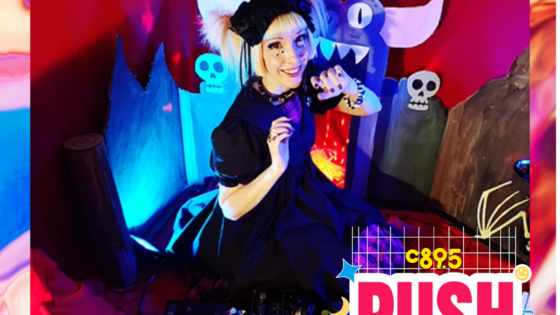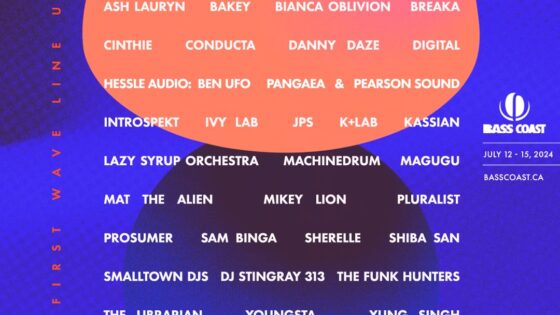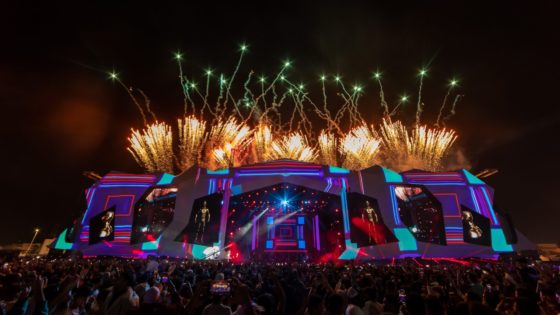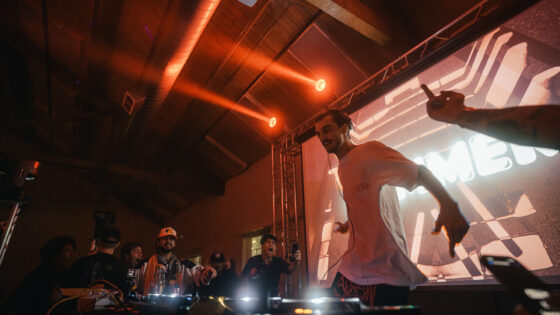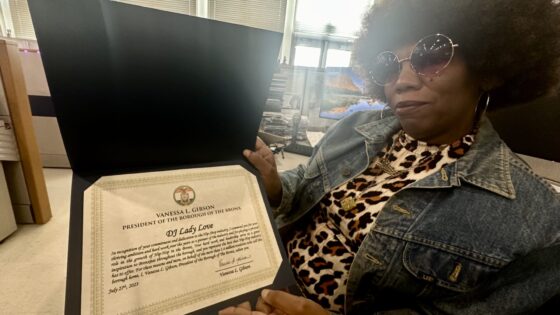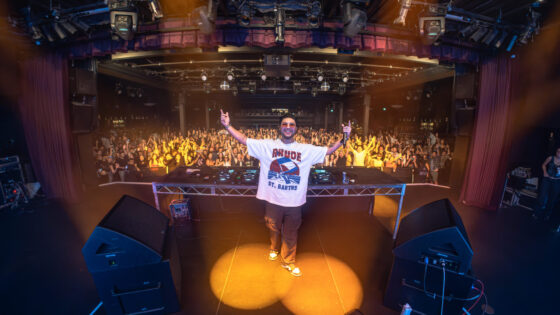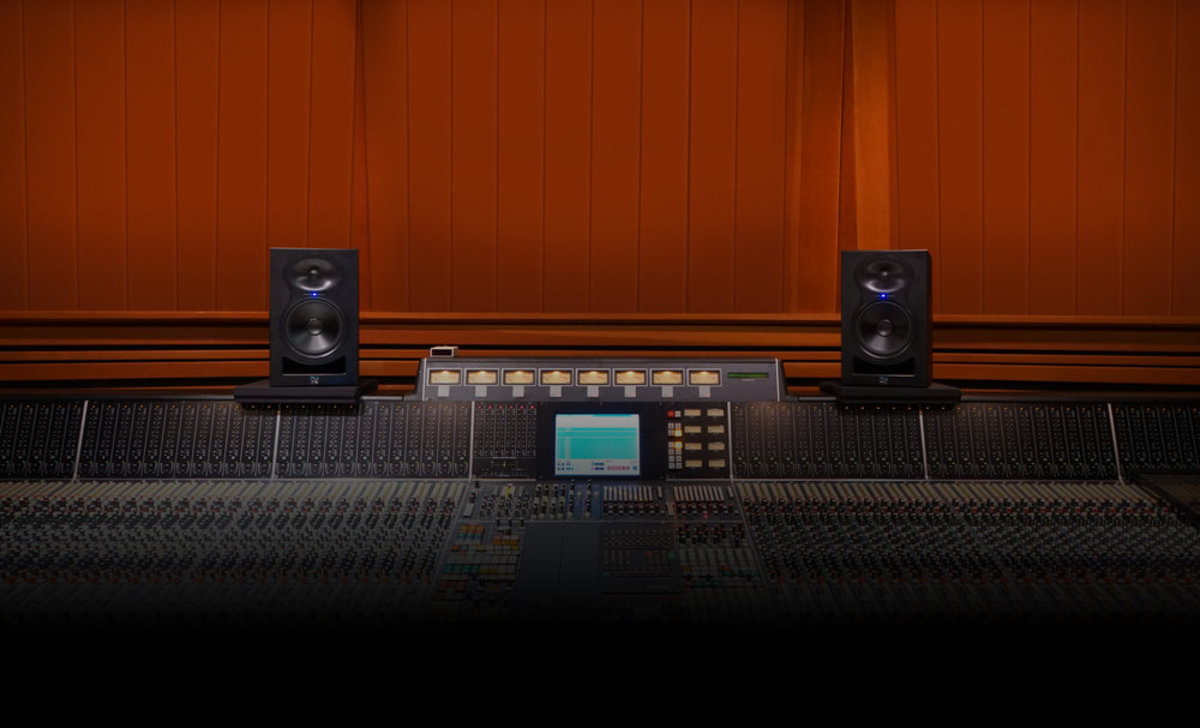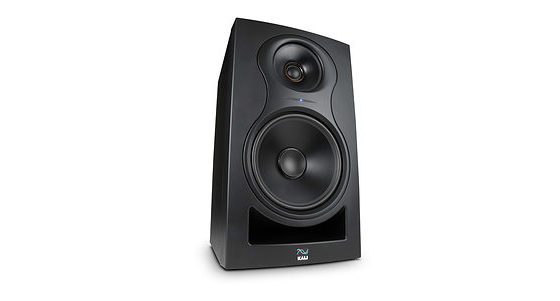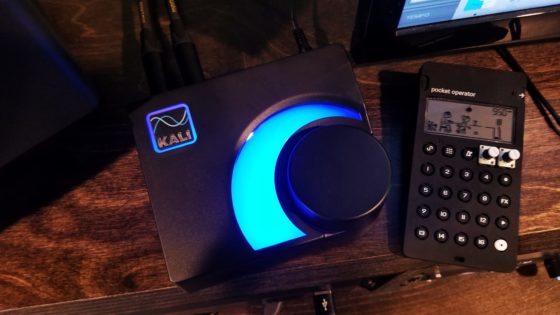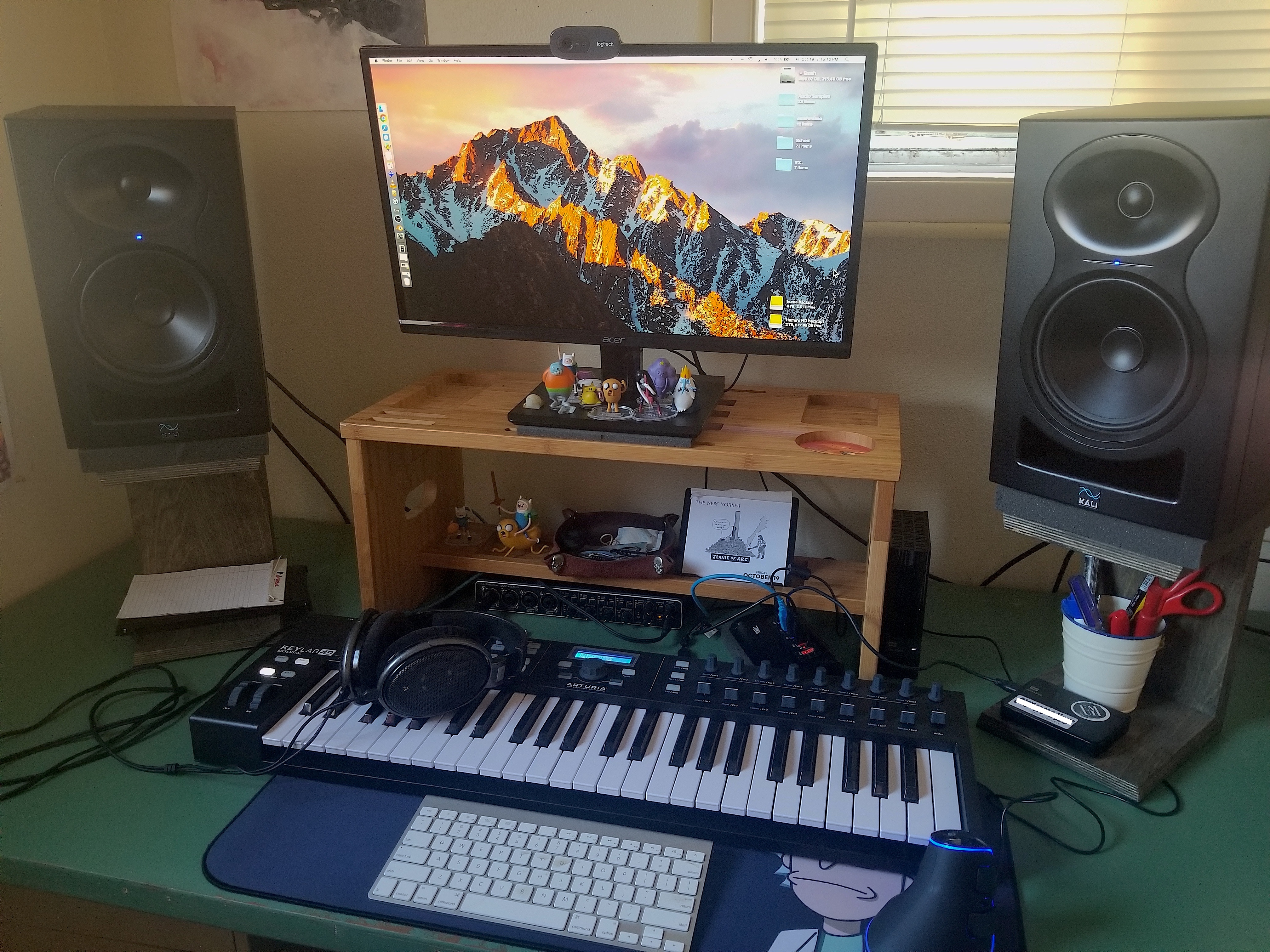We’ve been getting extremely good use out of our Kali Audio LP-6es and so have our friends. They offer unparalleled accuracy and listening comfortability at their price point, and while the $300 price tag is extremely affordable, some of us were wanting a bit more bass. We’ve recently put their larger LP-8s to the test and they certainly deliver in bass for the low end enthusiast! SOS recently praised Kali Audio early this December, as well as a number of other engineers and producers like Warren Huart. Kali Audio’s monitors boast highly customizable EQ settings and input options, a feature typically only found on high end studio monitors.
The LP-8s are reminiscent of the LP-6 with more pronounced roundness and less brightness at 10kHz. The midrange (100-1kHz) in particular is rounder in comparison but does not compromise the listening experience. As expected, the low end is much fuller and coupled with Sonarworks 4, we were blown away by the improvement in bass extension over the LP-6. This makes the LP-8 perfect for the bass-oriented producer or engineer. Subwoofers and three-way speakers often create more issues than the ones they remedy due to their complicated phase relationships. Fortunately Kali Audio has taken this into consideration with their monitors and the bass sounds perfectly in phase in a comfortably large sweet spot; their monitors’ subtle yet effective dispersion design works excellently in transparently transmitting audio.
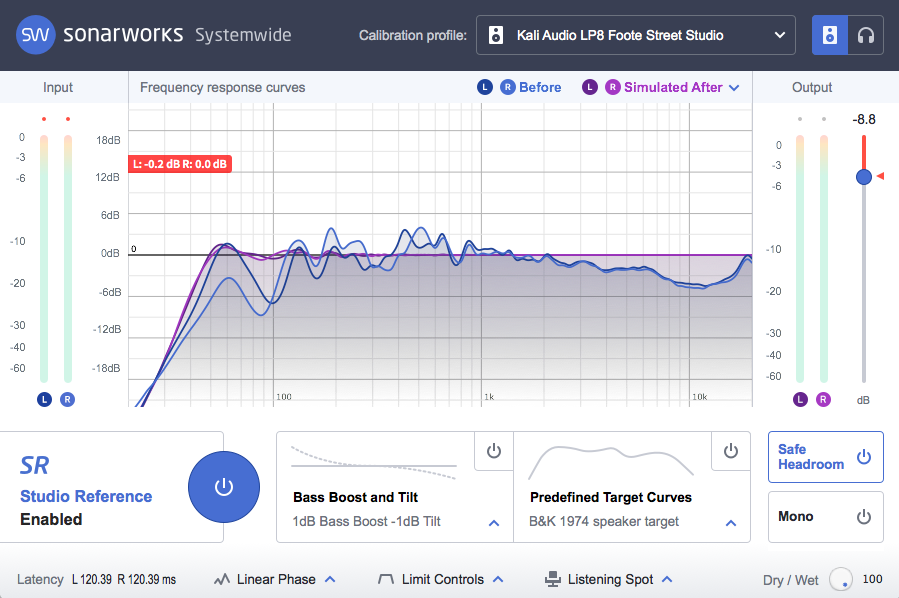
Once again Kali Audio has surprised us with the accuracy of their monitors. Paired with Sonarworks 4, the LP-8s produced another octave of bass below the LP-6es, while preserving extremely accurate frequency response across the spectrum.
Both the LP-6 and 8 have front-facing ports as well, an absolute must-have for smaller studios. Rear ports have become increasingly popular as people want more bass, but our advice is to stay away from rear ported speakers if you will be using them up against a wall or in a corner. Occasionally with front ported speakers, you might hear some port noise or resonance. That said, we’ve not once heard this from the LP-6 or 8’s speakers’ ports in any of our extensive tests. In comparison the Rokit 8 (front-ported) and Yamaha HS8 (rear-ported) sound unpleasantly resonant in the low end and low mids, while harsh in the high end – often resulting in dull mixes and most of all, inaccurate bass. Even Sonarworks couldn’t remedy the issues we’ve had with the Rokit 8 and HS8. The LP-6 and 8 are designed with quality at the forefront – as many have said before us, “quality in, quality out“.
What’s some of your favorite gear or plugins for audio production? Let us know on Social Media – we want to review them!
Important things happen in Pacific Northwest nightlife, and DMNW will send you alerts!




